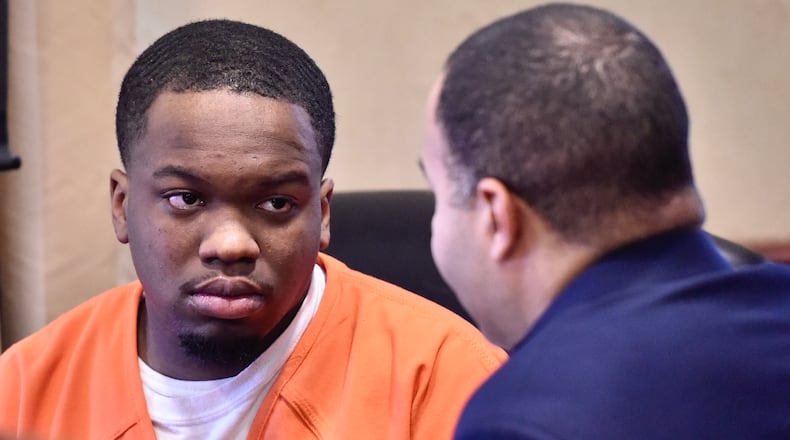MORE: Suspect: fatal St. Clair Twp shooting was self-defense
Attorney Lawrence Hawkins III argued statements Brown made to sheriff’s deputies during hours of questioning after the May 29 incident were illegally obtained because his Miranda warnings were not read to Brown when he was taken to the sheriff’s office.
Four detectives testified about the shooting on Warrick Road that killed Chatman.
Former Deputy Paul Newton said when he arrived at Brooks Road, a property owner had Brown and another man at gun point. He handcuffed both men and had them put in separate cruisers.
When deputies began talking with Brown, he said he was in a vehicle when another vehicle pulled up, and people inside started shooting.
“Mr. Brown continued to tell me over and over again that he had been in a situation that he had been shot at,” Deputy David Herring said. Brown said he had to jump in the river to get away. Herring said he took the handcuffs off of Brown after patting him down for safety then placed him in the cruiser.
MORE: $1 million bond for teen charged with murder in fatal shooting
When Brown was taken to the sheriff’s office, he was escorted in through the administrative wing without handcuffs and placed in room where he was questioned, smoked cigarettes and permitted bathroom breaks, according to the detectives’ testimony.
“He was a witness,” said Detective Green Detherage.
But after about two hours of questioning, in which Brown told three different versions of what happened, he became a person of interest, according to Detective Ryan Hensley. That is when he was read his Miranda rights and signed a card stating that he understood, and he continued to talk. A test was then done for gunshot residue on Brown’s hands.
Brown eventually said he was in the car, guns were pulled and he shot Maurice Chatman, Hensley said.
Assistant Prosecutor Josh Muennich pointed out Brown was read his Miranda rights four times during questioning by deputies but admitted there was a transition in the case when Brown went from witness to suspect.
MORE: Oxford taxi driver accused of rape back in jail
The prosecution also noted that once Brown said he wanted an attorney during a questioning session in early June, the detectives asked no more questions. But again in August, Brown sought Hensley out to talk with him.
Hawkins, however, argued Brown was not free to go from in the moment handcuffs were placed on him at the scene on Brooks Road.
“From the beginning he was treated as a suspect,” Hawkins said. “If he was truly just a witness, they could have put him in the front seat to be taken back to the sheriff’s office. The back seat is where suspects are placed.”
Hawkins said deputies should have read his client his Miranda rights from the very beginning.
Judge Greg Howard said he will review the interrogation tapes submitted by both sides.
About the Author

